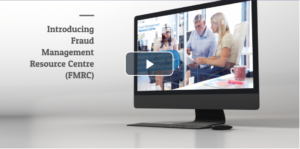Increased bribery and corruption risks due to Covid 19
The OECD as well as Europol and Interpol have all warned that bribery and corruption risks for all organisations have increased as a result of the Covid 19 pandemic. Last year the OECD stated:
“The coronavirus (COVID-19) crisis has brought about unprecedented challenges of human suffering, uncertainty and major economic disruption on a global scale. This can create environments that are ripe for corruption and bribery. For this reason, state and private sector responses to this crisis should include mechanisms for preventing, detecting and prosecuting corruption and bribery.”
This has been compounded by less formal procurement processes being adopted to cater for emergency situations as well as people working from home. Through analysis of expenses and spend data for clients we have seen an increase in employees purchasing goods and services from their own purse and then claiming the money back through expense claims or increased purchases on corporate credit cards. In many cases these processes were never designed to cope with this type of expenditure. This has enabled employees to bypass procurement tendering rules, conflicts of interest checks or approved supplier lists. This not only increases the risk of bribery and corruption but also increases the risk of breaches of sanctions legislation as well as other supply chain risks associated with modern day slavery or unethical sourcing of goods.
There has also been an increase in fraud through non delivery of goods, shipping related fraud, invoice related fraud and product quality fraud. All of this not only increases financial but also legal and compliance as well as reputational and in some cases health and safety risks. The worst case we have seen related to the supply of Personal Protective Equipment (PPE) which did not meet quality or safety standards.
Things may only get worse with any future economic decline or company performance challenges and associated pressure for employees to hit targets leading some to be tempted to ‘do the wrong thing’. How managers react to these challenges could also exacerbate the situation if they take an overly robust or ‘bullying’ approach. Poor organisational culture is going to come back and haunt a number of organisations in this climate. Fear of retaliation for speaking up or that concerns are not listened to will also increase the risks as will poor prevention or detection controls and inadequate data analysis.
There is much that organisations can do to help themselves including the basics of ensuring they have ‘adequate procedures’ including:
- up to date risk assessments,
- clear messages from leaders,
- strong associated policies and procedures including effective whistleblowing and data analysis,
- raising awareness for staff and third parties through essential training , and
- testing compliance through independent health checks or internal audits.
If you have concerns we have services covering all of the above aspects including an e-learning module developed with the Intelect Group.
We also have a number of useful resources in our unique Fraud Management Resource Centre.


